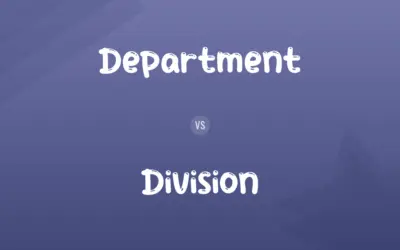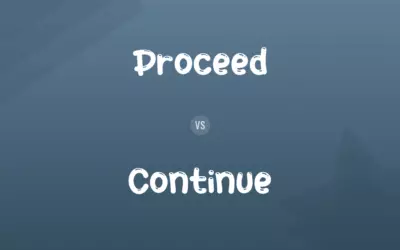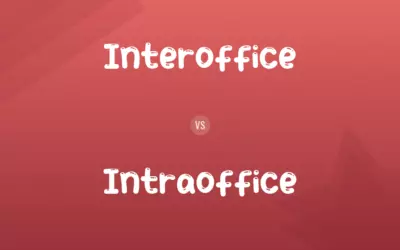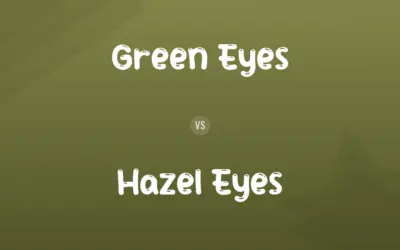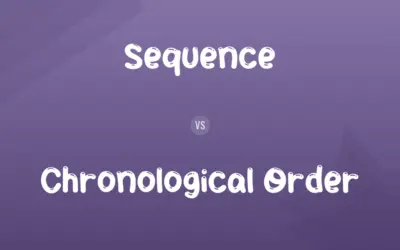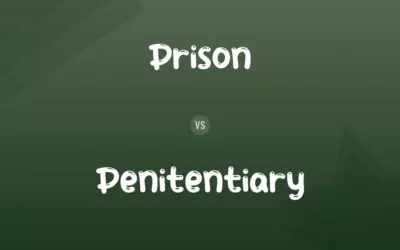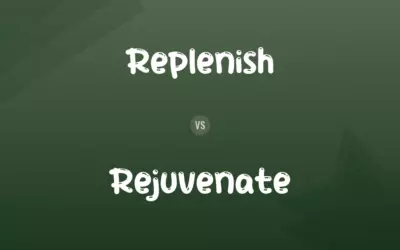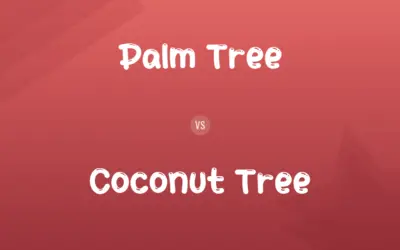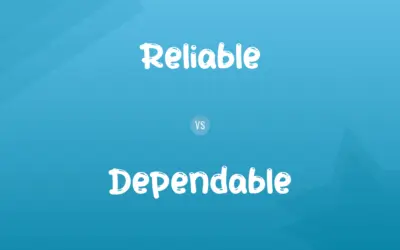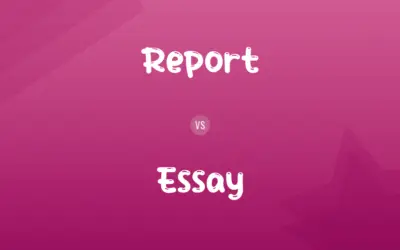Deductive vs. Heuristic: Difference and Comparison
By Muazma Batool & Muneeza Rehman — Updated on February 26, 2024
Deductive reasoning is a logical process where conclusions are based on premises, while heuristic methods involve practical problem-solving techniques that may not guarantee a perfect solution but are efficient.
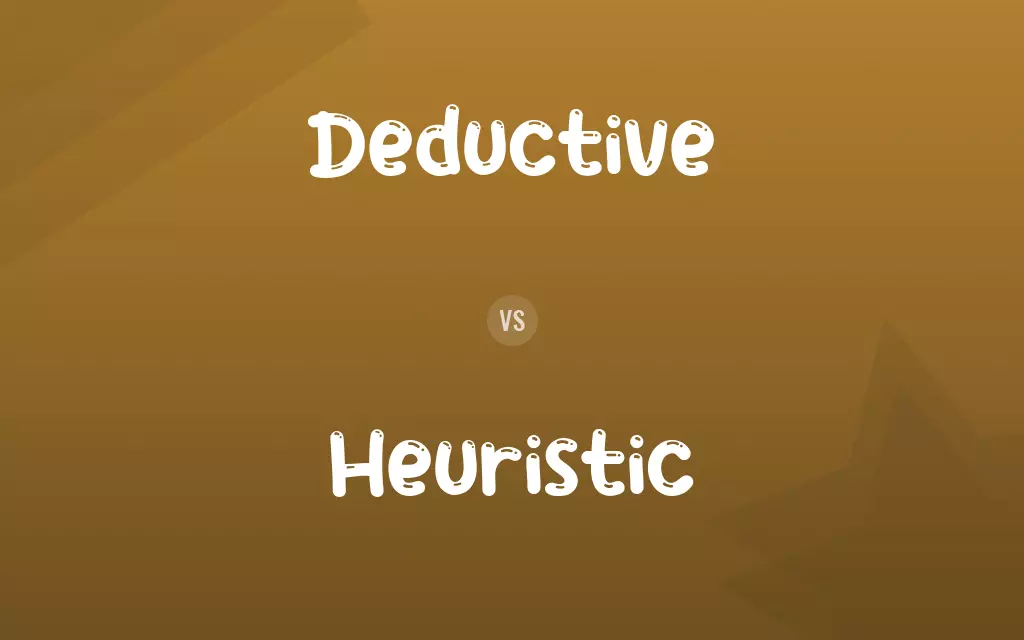
Difference Between Deductive and Heuristic
Deductive reasoning is a structured method of logical thinking that starts with a general statement or hypothesis and moves towards a specific conclusion. This process is foundational in mathematics and formal logic, where it's used to derive conclusions that are logically certain, given the premises are true. In contrast, heuristic approaches are based on experience and experimentation, offering quick, efficient solutions that are not guaranteed to be optimal or error-free. Heuristics are often used in situations where an immediate decision is needed, and the vast possibilities make exhaustive analysis impractical.
Muazma Batool
Feb 26, 2024
Deductive reasoning provides a clear, linear path to a conclusion, ensuring the outcome is directly related to the initial premises, heuristics apply rules of thumb, educated guesses, or intuitive judgments. This distinction highlights the trade-off between the certainty of deductive reasoning and the speed and adaptability of heuristic methods. Heuristics can be particularly valuable in fields like computer science and psychology, where they help navigate complex or poorly understood problems.
Muazma Batool
Feb 26, 2024
The application of deductive reasoning is best suited for environments where accuracy and logical consistency are paramount, such as in legal arguments or scientific research. Heuristic methods, however, shine in dynamic and uncertain environments where speed and flexibility outweigh the need for absolute precision, such as in emergency decision-making or innovative product design.
Muazma Batool
Feb 26, 2024
Understanding the strengths and limitations of each approach is crucial for effective problem-solving. Deductive reasoning's reliance on firm principles offers certainty but can be rigid and time-consuming. Heuristics, while more flexible and faster, may lead to biases or errors if the underlying assumptions or experiences are not broadly applicable or if the situation changes unexpectedly.
Henry
Feb 26, 2024
Deductive vs. Heuristic Comparison Chart
Basis
Logical progression from general to specific.
Experience-based shortcuts and rules of thumb.
Muazma Batool
Feb 26, 2024
Outcome
Conclusions are logically certain, given true premises.
Efficient solutions that may not be optimal.
Muazma Batool
Feb 26, 2024
Application
Mathematics, formal logic, sciences.
Problem-solving in complex, uncertain environments.
Muazma Batool
Feb 26, 2024
Deductive vs. Heuristic Definitions
◉Deductive
Used to derive logically certain conclusions within a structured framework.
If all birds fly and a sparrow is a bird, then a sparrow can fly.
Elijah
Feb 26, 2024
◉Heuristic
Problem-solving techniques based on experience and intuition.
Using trial and error to solve a puzzle.
Muazma Batool
Feb 26, 2024
◉Deductive
Requires premises to be true for conclusions to be valid.
If it rains, the ground gets wet; it's raining; therefore, the ground is wet.
Muazma Batool
Feb 26, 2024
◉Heuristic
Employ rules of thumb for quick decision-making.
If it's not broken, don't fix it when managing technology.
Muazma Batool
Feb 26, 2024
◉Deductive
A logical process that moves from a general statement to a specific conclusion.
All men are mortal; Socrates is a man; therefore, Socrates is mortal.
Muazma Batool
Feb 26, 2024
◉Heuristic
Adapt to complex situations with incomplete information.
Choosing a route based on traffic patterns.
Muazma Batool
Feb 26, 2024
◉Deductive
Often used in formal sciences and logic.
In mathematics, if a=b and b=c, then a=c.
Muazma Batool
Feb 26, 2024
◉Heuristic
Can lead to innovative approaches in uncertain environments.
Developing a new marketing strategy based on successful case studies.
Elijah
Feb 26, 2024
◉Deductive
Applies universal principles to reach a particular case.
Laws of physics apply everywhere; thus, an apple will fall towards the earth.
Nolan
Feb 26, 2024
◉Heuristic
Focus on practical solutions rather than perfect outcomes.
Estimating distances based on familiar landmarks.
Levi
Feb 26, 2024
◉Heuristic
Of or relating to a usually speculative formulation serving as a guide in the investigation or solution of a problem
"The historian discovers the past by the judicious use of such a heuristic device as the 'ideal type'" (Karl J. Weintraub).
Muazma Batool
May 03, 2023
◉Heuristic
Of or constituting an educational method in which learning takes place through discoveries that result from investigations made by the student.
Muazma Batool
May 03, 2023
◉Deductive
Of or pertaining to deduction; capable of being deduced from premises; deducible.
All knowledge of causes is deductive.
Notions and ideas . . . used in a deductive process.
Muazma Batool
May 03, 2023
Deductive vs. Heuristic Frequently Asked Questions
What is deductive reasoning?
Deductive reasoning is a logical process where specific conclusions are derived from general statements or premises, ensuring logical certainty if the premises are true.
Muazma Batool
Feb 26, 2024
Can deductive reasoning and heuristic methods be used together?
Yes, in complex problem-solving, both approaches can complement each other, with deductive reasoning ensuring logical foundation and heuristics providing practical, adaptive strategies.
Lucas
Feb 26, 2024
What are heuristic methods?
Heuristic methods involve practical problem-solving techniques, rules of thumb, or educated guesses, aimed at finding efficient solutions quickly, especially in complex or uncertain situations.
Muazma Batool
Feb 26, 2024
Why might someone choose a heuristic method over deductive reasoning?
Heuristic methods are chosen for their efficiency and practicality in situations where speed is crucial, and perfect solutions are less important than immediate results.
Kaitlyn
Feb 26, 2024
Do heuristic methods guarantee correct solutions?
No, while heuristic methods are efficient and practical, they do not guarantee the optimal or correct solution, as they may rely on simplifications or assumptions.
Nolan
Feb 26, 2024
Can the use of heuristics lead to biases?
Yes, because heuristics rely on subjective judgment and experience, they can introduce biases or errors, especially if the heuristic is based on limited or unrepresentative data.
Jonathan
Feb 26, 2024
How do deductive reasoning and heuristic methods differ in application?
Deductive reasoning is applied in fields requiring logical precision, such as mathematics and science, while heuristics are used in dynamic environments where quick, practical solutions are needed.
Muazma Batool
Feb 26, 2024
Is deductive reasoning infallible?
While deductive reasoning provides logical certainty given true premises, the validity of its conclusions heavily depends on the accuracy of the initial premises.
Muazma Batool
Feb 26, 2024
What is an example of a heuristic in daily life?
A common daily heuristic is the "rule of thumb" for estimating time or distance, such as assuming traffic will be lighter on weekends.
Kaitlyn
Feb 26, 2024
How are heuristic methods developed?
Heuristic methods are often developed through experience, experimentation, and the identification of patterns or shortcuts that consistently lead to satisfactory outcomes.
Muazma Batool
Feb 26, 2024
Content Creators
Written by
Muazma BatoolAs a content editor, Muazma Batool is not just a grammar guru but a creative mastermind who breathes life into every word. With an eagle eye for detail and a passion for storytelling, she transforms bland text into engaging content that captivates audiences and drives results.
Co-written by
Muneeza RehmanAt Comparisons.wiki, Muneeza skillfully navigates the vast sea of information, ensuring clarity and accuracy as the lead content editor. With a keen eye for detail, she curates every comparison to enlighten and engage readers.




